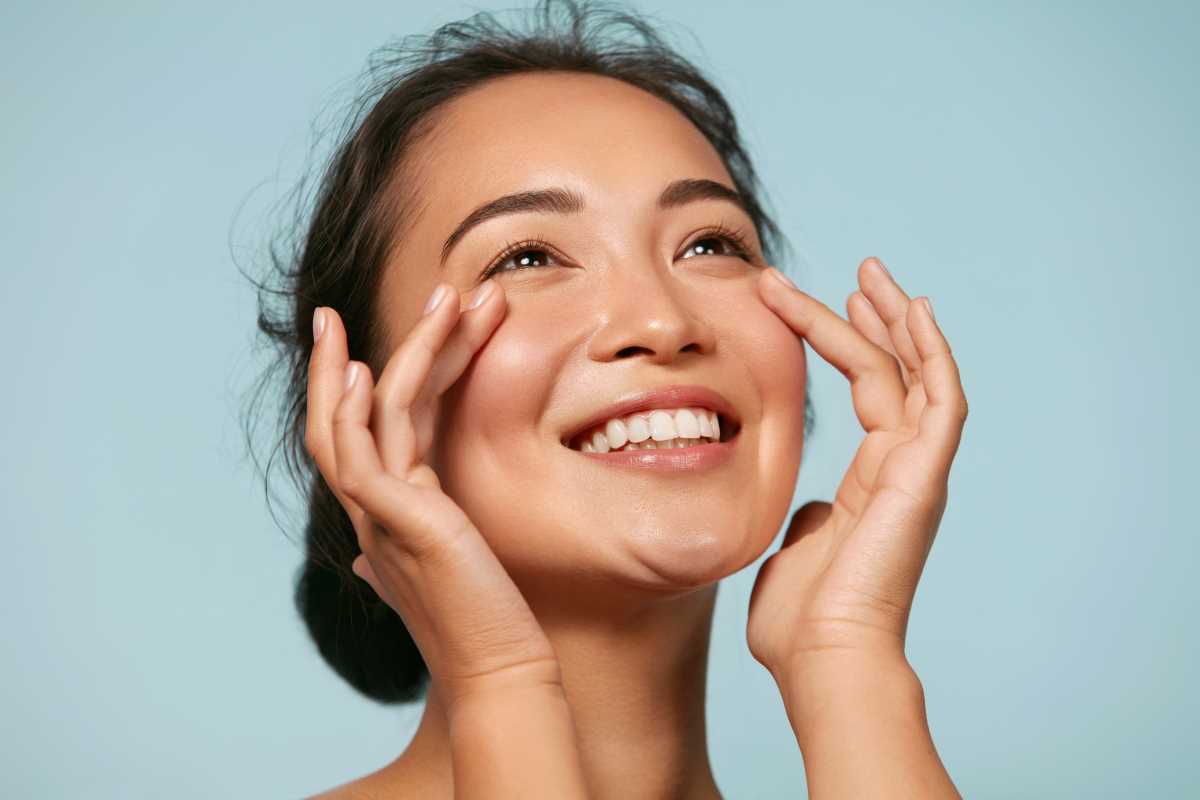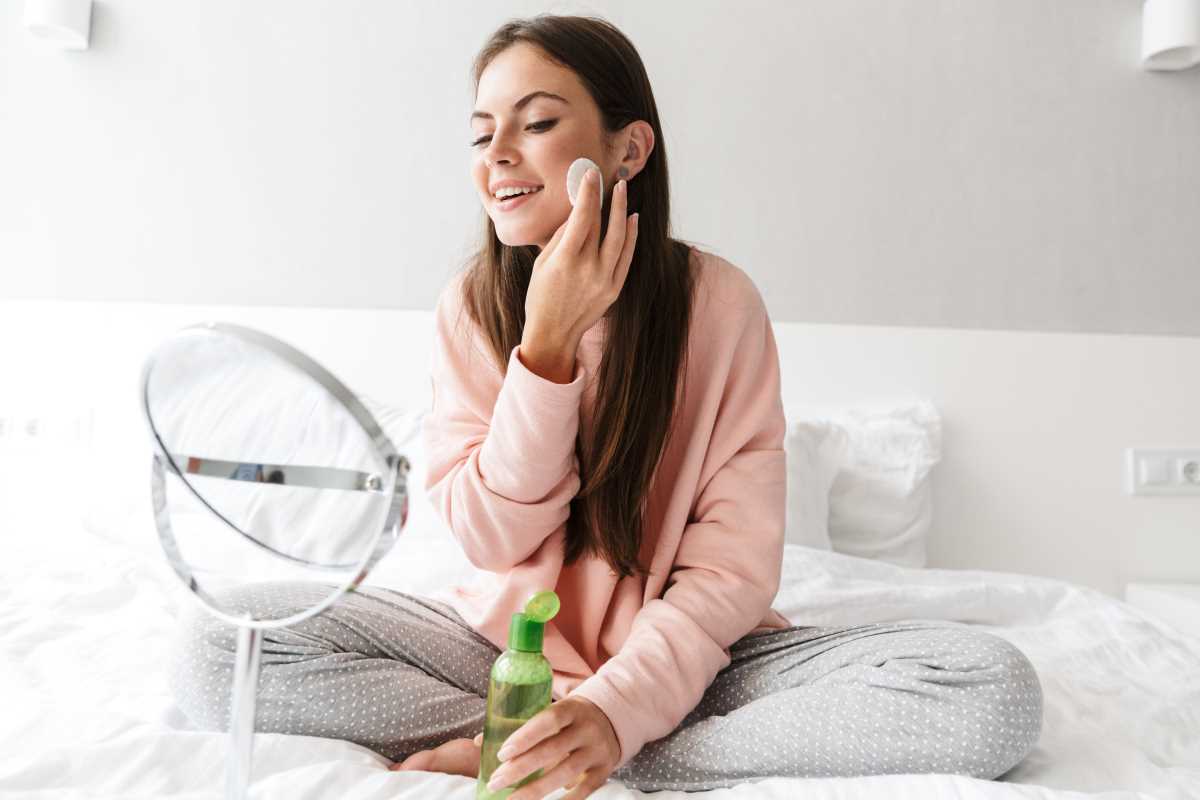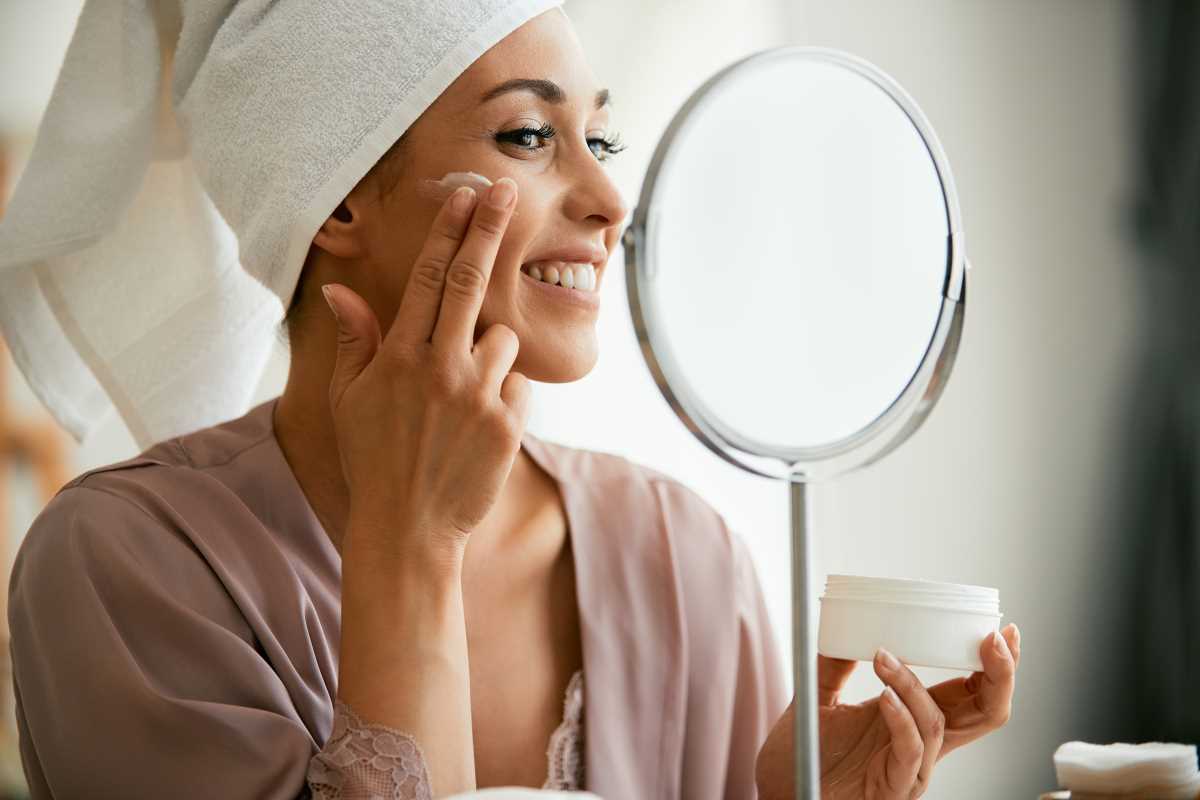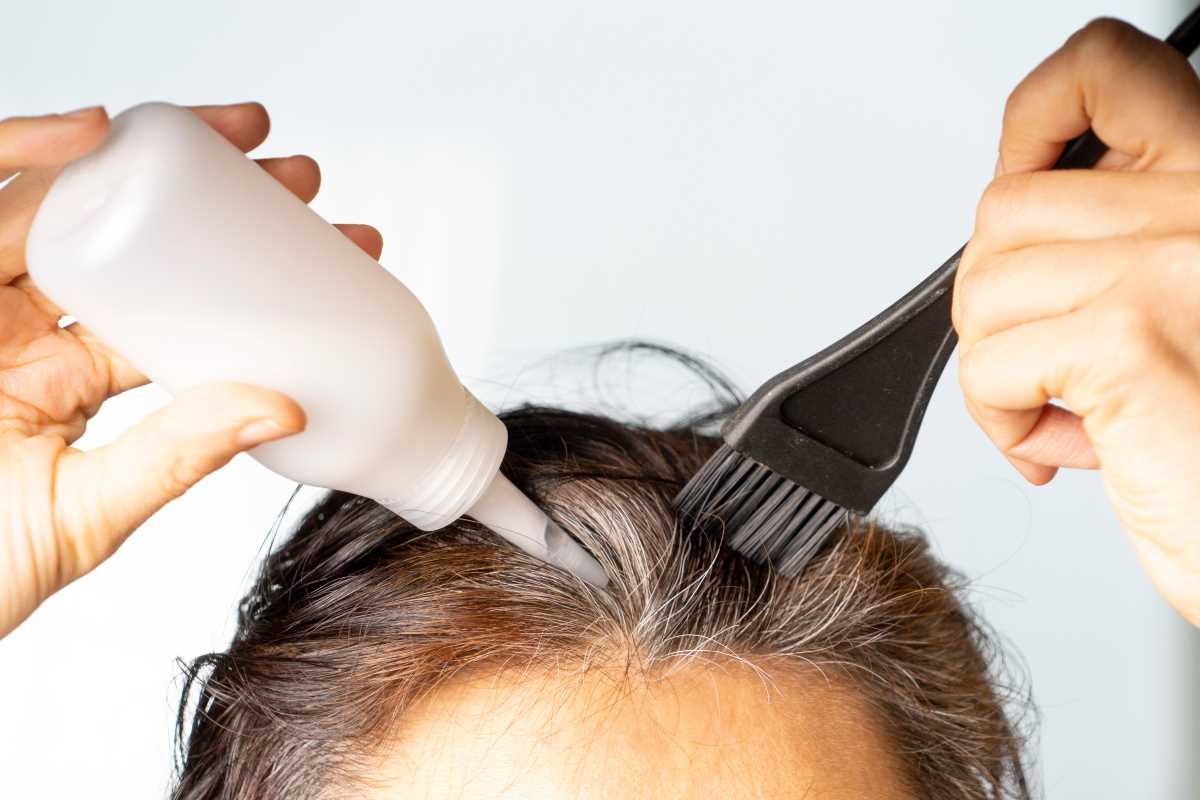Sunscreen is often considered a summer essential, but its importance extends far beyond just preventing sunburns on a beach day. Incorporating sunscreen into your daily routine is a crucial step in safeguarding your skin’s health, protecting against premature aging, and reducing the risk of skin cancer. Whether you’re spending a day outdoors or running errands, sunscreen is a powerful tool in the fight against the harmful effects of the sun’s ultraviolet (UV) rays.
1. Shielding Against UV Radiation
The sun emits two types of UV rays that can damage the skin: UVA and UVB. UVA rays penetrate deep into the skin, leading to premature aging and wrinkles, while UVB rays are primarily responsible for sunburn. Both types can contribute to the development of skin cancer. Sunscreen acts as a protective barrier, absorbing or reflecting these harmful rays before they can penetrate the skin.
By wearing sunscreen, you reduce your exposure to these harmful rays, lowering your risk of developing skin cancer, including the most dangerous type, melanoma.
2. Preventing Premature Aging
One of the most visible effects of sun exposure is premature aging, often referred to as photoaging. UV rays break down collagen and elastin fibers in the skin, leading to wrinkles, sagging, and an overall loss of skin elasticity. Over time, repeated sun exposure without protection can result in age spots, fine lines, and a rough texture.
Sunscreen helps prevent these signs of aging by blocking the UV rays that cause them. Regular use of sunscreen can keep your skin looking youthful, smooth, and radiant for years to come.
3. Reducing the Risk of Skin Cancer
Skin cancer is the most common form of cancer in the United States, and its primary cause is UV radiation from the sun. According to the Skin Cancer Foundation, regular daily use of an SPF 15 or higher sunscreen can reduce your risk of developing squamous cell carcinoma by about 40% and lower your melanoma risk by 50%.
Sunscreen is especially important for individuals with fair skin, a history of sunburns, or a family history of skin cancer. However, everyone, regardless of skin type or ethnicity, should make sunscreen a non-negotiable part of their daily routine.
4. Maintaining an Even Skin Tone
Sun exposure can lead to uneven skin tone, hyperpigmentation, and dark spots, often called sunspots or liver spots. These discolorations are caused by an overproduction of melanin in response to UV exposure. Wearing sunscreen daily helps prevent these spots from forming, and it can also prevent existing spots from becoming darker.
For those with sensitive or acne-prone skin, choosing a sunscreen that’s non-comedogenic and formulated for your skin type can help maintain a clear, even complexion.
5. Sunscreen is for Everyone, Everywhere
It’s a common misconception that sunscreen is only necessary on sunny days or when spending time outdoors. UV rays can penetrate through clouds and even windows, meaning your skin is exposed even on overcast days or when you’re indoors near windows. This is why dermatologists recommend applying sunscreen every day, regardless of the weather.
Additionally, people with darker skin tones may believe they are naturally protected from the sun due to higher melanin levels. However, they are still at risk of UV damage and skin cancer, making sunscreen equally important.
6. Choosing the Right Sunscreen
When selecting a sunscreen, look for one that offers broad-spectrum protection, meaning it shields against both UVA and UVB rays. The SPF (Sun Protection Factor) should be 30 or higher for daily use. Water-resistant formulas are ideal for outdoor activities, but it’s important to reapply every two hours, or immediately after swimming or sweating.
For those concerned about the potential environmental impact of certain chemical sunscreens, mineral-based sunscreens containing zinc oxide or titanium dioxide are effective alternatives that are also reef-safe.
EltaMD UV Clear Broad-Spectrum SPF 46
- Lightweight and oil-free
- Suitable for acne-prone and sensitive skin
- Contains niacinamide (Vitamin B3) for calming skin
La Roche-Posay Anthelios Melt-in Milk Sunscreen SPF 100
- Broad-spectrum UVA/UVB protection
- Non-greasy and fast-absorbing
- Water-resistant (80 minutes)
Neutrogena Ultra Sheer Dry-Touch Sunscreen SPF 55
- Lightweight with a matte finish
- Fast-absorbing and non-comedogenic
- Affordable and widely available
Supergoop! Unseen Sunscreen SPF 40
- Invisible, weightless formula
- Oil-free and suitable for all skin types
- Doubles as a makeup primer
CeraVe Hydrating Mineral Sunscreen SPF 30
- Contains ceramides and hyaluronic acid for hydration
- 100% mineral-based (zinc oxide and titanium dioxide)
- Gentle and suitable for sensitive skin
Vanicream Sunscreen Sport SPF 35
- Fragrance-free and free of common irritants
- Water-resistant (80 minutes)
- Great for sensitive skin and eczema
Colorescience Sunforgettable Total Protection Brush-On Shield SPF 50
- Powder formula, easy for reapplication
- Contains antioxidants and is water-resistant (80 minutes)
- Ideal for on-the-go use over makeup
Aveeno Positively Mineral Sensitive Skin Sunscreen SPF 50
- Mineral-based with soothing oat
- Gentle, non-comedogenic, and oil-free
- Suitable for sensitive and allergy-prone skin
Blue Lizard Australian Sunscreen Sensitive SPF 30+
- Mineral-based with zinc oxide and titanium dioxide
- Water-resistant (80 minutes) and free of chemical active ingredients
- Recommended for sensitive skin
ISDIN Eryfotona Actinica Ultralight Emulsion SPF 50+
- Contains DNA repair enzymes
- Lightweight and quickly absorbed
- Ideal for daily use, especially for those with sun damage
7. Incorporating Sunscreen Into Your Daily Routine
Applying sunscreen should be as routine as brushing your teeth. Apply it generously to all exposed skin, including your face, neck, ears, and hands, 15 minutes before going outside. Don’t forget areas like the tops of your feet and the part in your hair if exposed. If you wear makeup, there are many foundations and moisturizers with built-in SPF, but these should be used with a standalone sunscreen for optimal protection.
Sunscreen is not just a seasonal accessory but a vital part of your daily skincare regimen. By consistently using sunscreen, you can protect your skin from harmful UV rays, reduce the risk of skin cancer, and maintain a youthful, even complexion. It’s a small daily habit that can have a profound impact on your long-term skin health. So, whether it’s sunny or cloudy, summer or winter, make sunscreen a non-negotiable part of your routine—your skin will thank you for it.
 (Image via
(Image via




